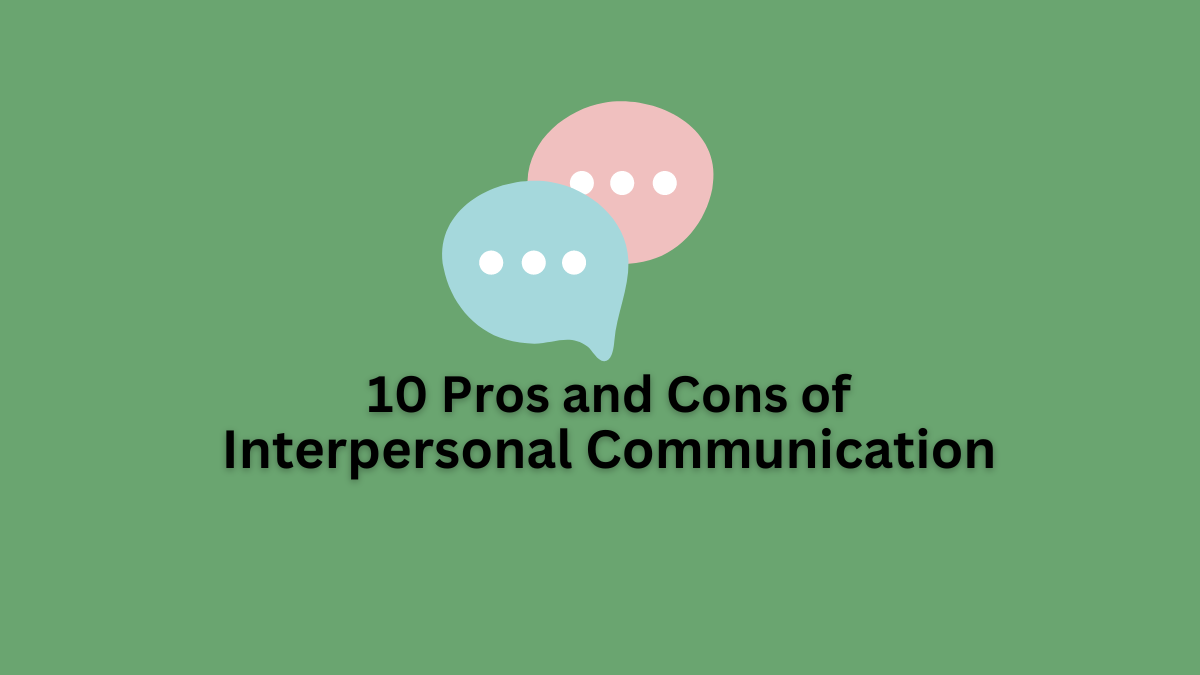What is Interpersonal Communication?
Interpersonal communication is the exchange of information, ideas, and feelings between two or more people. It involves both verbal methods (such as talking and writing) and non-verbal methods (such as body language, facial expressions, and gestures).
This type of communication is fundamental to how we interact with each other, whether in personal relationships or professional settings. Effective interpersonal communication is crucial for building strong relationships, collaborating effectively, and achieving mutual understanding.
How Does It Work in Business?
In a business context, interpersonal communication plays a key role in various aspects:
- Daily Interactions: Employees use interpersonal communication in routine activities such as team meetings, performance reviews, and brainstorming sessions. How well these interactions are handled can impact overall team cohesion and productivity.
- Client and Customer Relations: Clear and respectful communication with clients and customers is essential for maintaining positive relationships and ensuring satisfaction.
- Leadership and Management: Managers need strong interpersonal skills to guide, motivate, and support their teams. Effective communication helps leaders align their team with business goals and address any issues that arise.
- Conflict Resolution: Disputes and conflicts are inevitable in any organization. Good interpersonal communication is necessary for resolving these issues constructively and maintaining a positive work environment.
- Remote Work: With the rise of remote work, maintaining interpersonal communication through virtual platforms has become increasingly important for team cohesion and productivity.
Pros of Interpersonal Communication
The following are the five key advantages of interpersonal communication in the workplace:
Enhances Problem-Solving
Interpersonal communication fosters effective problem-solving by allowing team members to discuss issues, share ideas, and collaborate on solutions. Open dialogue ensures that diverse perspectives are considered, leading to more innovative and effective solutions.
Example: During a project brainstorming session, team members share different viewpoints and expertise, resulting in a well-rounded strategy for overcoming a challenge.
Builds Trust
Clear and honest communication helps build trust between colleagues and managers. When employees feel that they can trust their leaders and peers, they are more likely to engage fully and work collaboratively.
Example: A manager who regularly updates their team on company developments and listens to their concerns fosters a trusting and transparent work environment.
Read More: Pros and Cons of Organizational Conflict
Improves Team Collaboration
Effective interpersonal communication enhances teamwork by facilitating coordination and cooperation among team members. It helps ensure that everyone is on the same page and working towards common goals.
Example: A team that communicates openly about their progress and challenges can more effectively collaborate on achieving project milestones.
Supports Career Development
Good interpersonal communication skills are highly valued by employers and can contribute to career advancement. Employees who communicate well are often considered for promotions and leadership roles.
Example: An employee who effectively communicates their achievements and aspirations to their manager may be recognized for potential growth opportunities.
Facilitates Conflict Resolution
Interpersonal communication is essential for constructively resolving conflicts. By addressing issues directly and respectfully, team members can find mutually acceptable solutions and maintain positive working relationships.
Example: When a disagreement arises between colleagues, a manager who facilitates open discussion can help resolve the issue and restore harmony.
Read More: Pros and Cons of Teamwork
Cons of Interpersonal Communication
The following are the five key disadvantages of interpersonal communication in the workplace:
Potential for Miscommunication
Miscommunication can occur if messages are not conveyed clearly or if there are misunderstandings between parties. This can lead to errors, confusion, and frustration.
Example: Ambiguous instructions from a manager may result in employees completing tasks incorrectly, leading to delays and dissatisfaction.
Emotional Impact
Interpersonal communication can sometimes involve emotionally charged discussions, which may lead to conflicts or hurt feelings. Handling these emotions effectively requires additional skills and sensitivity.
Example: A performance review that focuses solely on areas of improvement without acknowledging strengths can negatively impact an employee’s morale.
Time-Consuming
Effective interpersonal communication can be time-consuming, especially when dealing with complex issues or conflicts. It requires time for discussions, feedback, and follow-up.
Example: Resolving a conflict between team members may involve multiple meetings and discussions, which can take time away from other tasks.
Read More: Pros and Cons of Laissez-Faire Leadership
Cultural and Personal Differences
Different cultural backgrounds and personal communication styles can lead to misunderstandings and conflicts. Navigating these differences requires awareness and adaptability.
Example: A direct communication style that is effective in one culture may be perceived as confrontational in another, leading to potential misunderstandings.
Over-Reliance on Verbal Communication
Relying too heavily on verbal communication can sometimes overlook the importance of non-verbal cues and body language. This can lead to incomplete or inaccurate understanding.
Example: In a virtual meeting, the lack of visual cues may result in misinterpretation of tone or intent, affecting the effectiveness of the communication.
When Interpersonal Communication Is Effective?
Interpersonal communication is most effective when:
- There Is Clarity: Clear and precise communication helps ensure that messages are understood correctly. Avoiding jargon and being specific can reduce misunderstandings and increase the effectiveness of the interaction.
- It Is Respectful and Empathetic: Respectful and empathetic communication fosters a positive environment where individuals feel valued and heard. This approach helps build strong relationships and trust.
- Feedback Is Constructive: Providing constructive feedback helps individuals understand areas for improvement and feel motivated to enhance their performance. It should focus on behaviors and outcomes rather than personal attributes.
- It Adapts to Context: Effective interpersonal communication adapts to the context and the needs of the audience. Recognizing when to use different communication styles or channels can enhance the impact of the message.
- There Is Regular Follow-Up: Follow-up communication ensures that messages are received and understood as intended. It helps address any lingering questions or concerns and reinforces key points.
Read Next: Pros and Cons of Participative Management
